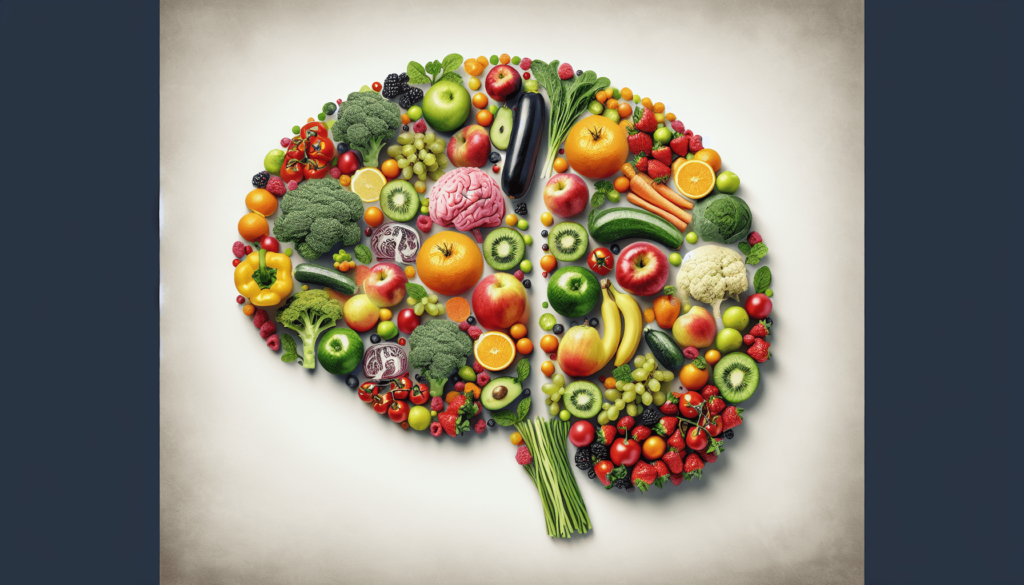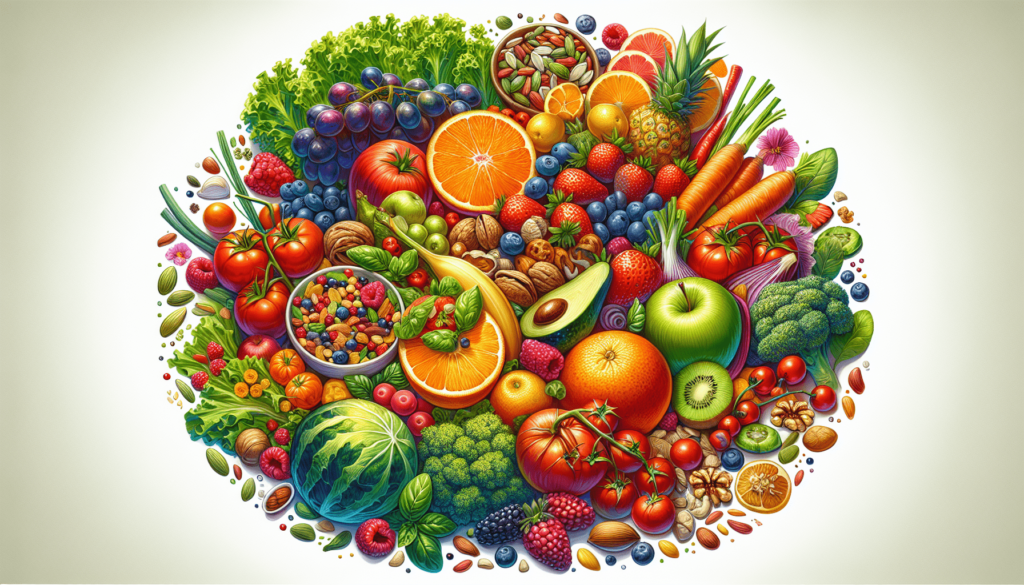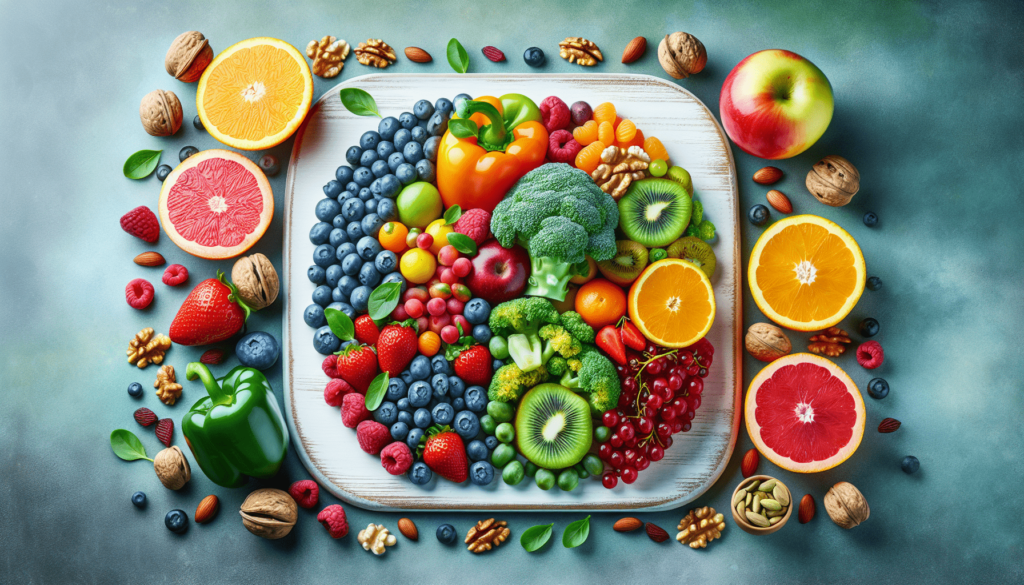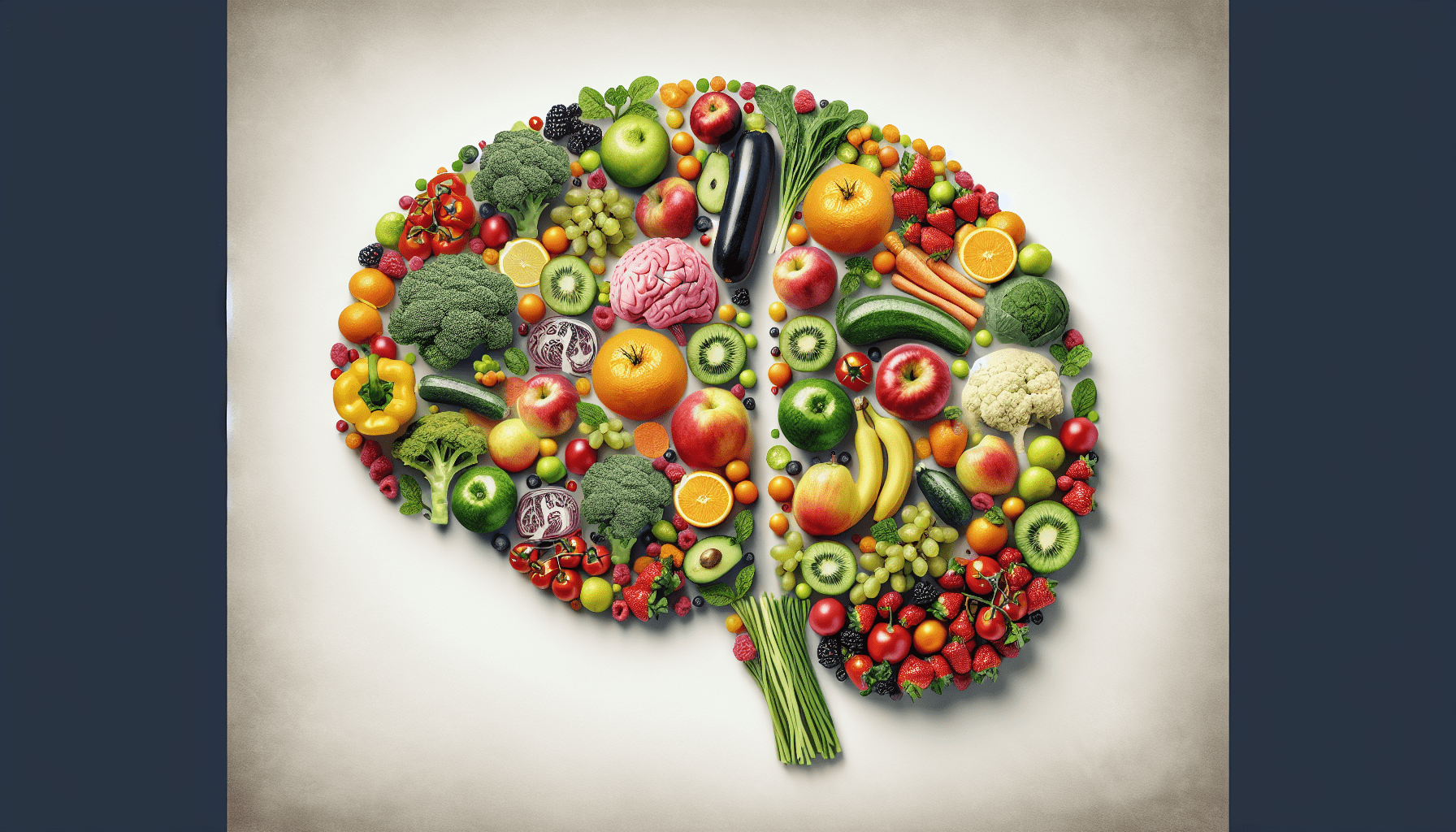Have you ever walked into a room only to forget why you entered in the first place? You’re not alone! Forgetting the purpose of your mission while standing in the middle of a room isn’t just the forte of intelligent spies on TV; it’s a universal human experience. And no, it’s not because you’re secretly starring in your own espionage thriller. Mental clarity, or the lack thereof, can sometimes make us feel like we’re perpetually running on a hamster wheel of thoughts. Fortunately, it’s not all doom and gloom—there are ways to improve this, and it starts with what’s on your plate!
The Brain: Your Body’s Command Center
Think of your brain as a tightly-knit group of hyperactive squirrels dashing about, deciding everything from whether you should wear that green shirt today to debating existential questions like “Why do I need to pee right before an important meeting?” It’s the command center of your entire being. But just like any control room, it’s vulnerable to power shortages and control hiccups.
The Science Behind Brain Power (Or Lack Thereof)
The truth is your brain is kind of a diva—it hogs about 20% of your body’s energy. Imagine that! One-fifth of all the calories you munch on are demanded by that wrinkly mass posing as the smartest part of your anatomy. When it runs low on fuel, it’s not shy about letting you know. Sometimes it sends the message as a sugar craving; other times, it sends you fogginess akin to trying to read War and Peace after a bottle of Nyquil.
Benefits of a Mentally Clear Brain
Apart from avoiding the embarrassment of calling your new neighbor Jim instead of Tim (even though he’s corrected you 352 times), having sharp mental clarity means making decisions faster, solving problems more efficiently, and channeling your inner Sherlock Holmes (minus the perplexing substance abuse). It’s like having broadband in a dial-up world; a sprightly advantage that could prevent you from awkwardly spacing out during important conversations.

What You Eat: The Recipe for Mental Clarity
Contrary to popular belief, the pathway to a clear mind doesn’t involve ceremonial chanting or aligning your chakras in the nearest wheat field. In fact, it’s as simple as raiding your kitchen—specifically your fridge. Nibbling on the right things can greatly improve your mental clarity.
Carbs: Friend or Foe?
If we were to believe every diet magazine ever, carbs would be the modern-day bogeyman. But don’t start villainizing your lasagna just yet! Your brain’s preferred energy source is glucose, a simple sugar derived primarily from—you guessed it—carbohydrates.
The Good, The Bad, and The Ugly (Carbs Edition)
| Type | Description | Examples |
|---|---|---|
| Simple Carbs | Quick energy but often lead to a sugar crash, dampening focus. | Candy, pastries, soda |
| Complex Carbs | Provide a steadier, slow release of energy, championing prolonged brain power and concentration. | Whole grains, legumes, veggies |
Simple carbs are like that one ex who promises the world but leaves you empty. Complex carbs, however, are like a committed partner equipped with emotional stability and snacks.
Proteins: The Building Blocks of Buff Brain Cells
While most people associate protein with gains and muscles, believe it or not, your noggin benefits from a good protein fix too! Proteins are broken down into amino acids like tyrosine and tryptophan, which aid in the production of crucial neurotransmitters.
Which Proteins Should Be Invited to the Party?
Fish, eggs, and tofu are like the VIPs of the protein world when it comes to mental clarity. Omega-3 fatty acids, found in fish like salmon, are especially beneficial for brain health. These proteins will help bolster your concentration, memory, and potentially enhance your creative musings—turning even the dullest Monday into a brainstorming fiesta.
Fats: Not Such a Bad Word After All
Fats have had a bad rep for too long. Fortunately, scientists have realized that there are good fats. Omega-3 fatty acids are like the gym trainers of the fat world; they pump up your neurons, increasing synaptic plasticity—which, to the layperson, means your thought processes are scuttling around like a cheetah on Red Bull.
Vitamins and Minerals: The Spice of Life
Yes, even your vitamins and minerals deserve a little attention beyond treating colds. They support neuron function and improve neuroplasticity.
What Should You Be Stocking Up On?
- Vitamin B Complex: Known as the brain’s best friend, they’re found in leafy greens and almonds.
- Antioxidants: You’ll find these in colorful fruits and vegetables and they battle oxidative stress in your brain. Think of them as your noggin’s personal secret service.
- Magnesium: Known for its mood-regulating properties, you’ll often find it in nuts, seeds, and dark chocolate (yes, you read that right!).

Hydration: The Overlooked Hero
Before you accuse me of sounding like a broken record, let’s talk water—or as I like to call it, the body’s unsung hero. Dehydration, even in mild forms, can cause concentration lapses and confused mental processes. Treat water as your new best friend. Drink enough to keep yourself functioning like a well-oiled machine but not so much that you’re camping in the bathroom every 30 minutes.

The Role of Exercise in Mental Clarity
It’s easy to forget that while mental clarity is influenced greatly by what you eat, it is also heavily affected by physical movement. Exercise encourages the growth of new brain cells and improves overall brain performance.
What Types of Exercise Help?
-
Aerobic Workouts: Whether it’s jogging, swimming, or participating in an interpretive dance about the plight of seagulls, aerobic exercise enhances cognitive function.
-
Yoga & Meditation: If jumping around isn’t your jam, yoga and meditation improve focus and ease anxiety, which naturally supports mental clarity. Plus, it’s a great way to show off your new lavender-scented yoga mat.

Sleep: Your Brain’s Housekeeper
How do you feel the morning after a night of battling on Netflix against the irresistible next episode autoplay? The brain’s equivalent of trying to hike up Everest in flip flops, perhaps? Sleep holds the magical power of rebooting the brain. During those dreamy slumbers, harmful toxins are cleansed and brain functions refined.
Tips for Better Sleep
- Create a Schedule: Regular sleep schedules do wonders for a countable sheep situation.
- Limit Caffeine & Electronics: Late-night lattes and blue screen lights are fabulous attention-seekers but terrible sleep-inducers.
- Think Cozy: Those silk pillowcases aren’t just our celebrity whims—comfort induces relaxation. Embrace the diva-life for once.

Mind Your (Brain) Business
Mental clarity is a multi-faceted entity, handshaking diet with exercise, hydration, and rest. Don’t fret if you occasionally blank out on someone’s name or why you stormed the kitchen at 3 AM—your naughty brain isn’t on strike; it’s just calling out for some TLC.
Putting it All Together
Transforming your brain from a fog-laden mess to a steel-sieve of brilliance isn’t as convoluted as solving the mystery of the Bermuda Triangle. Following a balanced diet loaded with the right amount of carbs, proteins, fats, vitamins, and minerals, while maintaining hydration and exercise, promises improvements in mental clarity. It’s about making conscious choices and setting intentions each day—nothing too grueling, but definitely rewarding.
Remember, the pathway to a sharper brain isn’t about a complete lifestyle overhaul but making small, intentional changes. After all, as they say, you’re never too old to learn new tricks—or stop awkwardly calling that poor Tim guy the wrong name.
Cheers to a clearer mind, fuller plate, and absolutely nailing that trivia quiz night (because you’re not just in it for the nachos anymore).
In conclusion, consider these tips your newly organized brain’s toolkit for clarity. Stick with it, and you might just find yourself entering rooms with full knowledge of why you’re there—unless, of course, it’s a haunted mansion, in which case, we’ll advise reviewing the life decisions that led you there in the first place.
